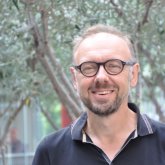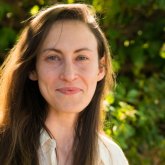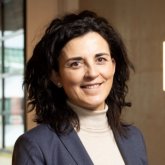The Net Zero Industry Act (NZIA), presented for the first time by the European Commission in March 2023, considers the production of green hydrogen to be a strategic industry. Hydrogen could account for 20% of the EU’s energy mix by 2050, including 20-50% of energy demand in transport and 5-20% in the industry. Water electrolysis is a promising technology to decrease the worldwide strong reliance on fossil fuels and support the development of a climate-neutral economy. Green hydrogen electrochemically generated with renewable power sources (e.g. solar, wind energy, etc.) is a clean and carbon-neutral energy carrier that can be stored, transported and re-transformed using a fuel cell to electricity with water as only by-product.
A large-scale (GWs) deployment of electrolysers is necessary to fulfil the ambitions of the European Green Deal in the context of the Hydrogen strategy for a climate-neutral Europe. Europe’s current target is to reach a maximum annual production capacity of 25 GW for electrolysers by 2025. The European Commission suggests that the EU should deploy a cumulative capacity of 100 GW of electrolysers by 2030 (with a target of 40% of total electrolyser deployment being made in Europe). The current European objective is to produce 10 million tonnes of green hydrogen by 2030.
There are various electrolysis technologies. The three most prominent of which are: alkaline water electrolysis (AEL), proton exchange membrane electrolysis (PEMEL), and solid oxide electrolysis (SOEL). Each selected technology has its unique characteristics and applications, yet the general chemical reaction is the same for all three.
To allow large-scale deployment, several common challenges remain to be tackled:
i) the limited stack durability and lifetime,
ii) the absence of detection and monitoring tools to predict an optimal, easily adjustable operational parameter space to decrease degradation phenomena driven by the operating conditions,
iii) ensuring reliable operation under fluctuating energy input,
iv) requirements to decrease system costs (in particular the total cost of ownership).
In the “DELYCIOUS” project funded by Horizon Europe and the EU Clean H2 Partnership, Air Liquide, Fraunhofer IWES, Horiba France, Dumarey Softronix, ETA Florence, Stargate Hydrogen, Sivonic, and University of Twente will combine forces to meet these challenges by developing Diagnostic tools for ELectrolYsers that are Cost-efficient, Innovative, Open, Universal and Safe. These diagnostic tools will first be validated at the lab-scale for all three technologies, AEL, PEMEL and SOEL followed by a TRL 6 demonstration of the developed electrolyser management system (EMS) with a 460 kW AEL stack.
Your principal task in the project will be the identification of suitable monitoring parameters to follow degradation of a SOEL lab-scale cell. For this, you will combine physics-based performance modelling of the SOEL cell with long-term (>1000 h) performance testing. Here, appropriate test protocols for the long-term performance tests will also need to be defined. Once the degradation parameters are identified, they will be fed to the condition monitoring scheme at the heart of the EMS. Finally, you will perform the validation of the developed EMS for a lab-scale SOEL cell and, in turn, check the validity of the identified SOEL degradation parameters via the combined experimental and modelling approach.
Information and application
Your application should include
- a 1 A4 page cover letter, emphasizing why you would be a good fit for the position,
- a detailed CV including the name and e-mail address for at least two references,
- a half A4 page summary of your PhD research.
An interview (or two) comprising of a scientific presentation followed by discussion will be part of the selection procedure. Following a pre-selection, short-listed candidates will be invited for interviews 1-2 weeks after the application deadline.
For more information about the position, you are welcome to contact Dr. Aayan Banerjee (a.banerjee@utwente.nl). Please do not send applications to this email address or via LinkedIn. They will not be taken into consideration. You can apply via the button below.
About the department
You will be a part of the Sustainable Electrochemical Engineering and Digitalisation (SEED) lab (https://www.utwente.nl/en/tnw/seed/). SEED is co-hosted by the groups Catalytic Processes and Materials and Inorganic Membranes in the Faculty of Science and Technology at the University of Twente. At SEED, you will join a team of 7 highly motivated PhD and postdoctoral researchers all working to accelerate electrochemical technology development for the low carbon energy and materials transition by bridging nano-scale physics to industrial-scale systems.
About the organisation
The Faculty of Science & Technology (Technische Natuurwetenschappen, TNW) engages some 700 staff members and 2000 students in education and research on the cutting edge of chemical technology, applied physics and biomedical technology. Our fields of application include sustainable energy, process technology and materials science, nanotechnology and technical medicine. As part of a people-first tech university that aims to shape society, individuals and connections, our faculty works together intensively with industrial partners and researchers in the Netherlands and abroad, and conducts extensive research for external commissioning parties and funders. Our research has a high profile both in the Netherlands and internationally and is strengthened by the many young researchers working on innovative projects with as doctoral candidates and post-docs. It has been accommodated in three multidisciplinary UT research institutes: Mesa+ Institute, TechMed Centre and Digital Society Institute.





